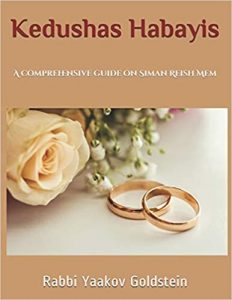The blessing of Sheasa Nissim:[1]
One who did not light Chanukah candles and will not be able to do so that night, and was not Yotzei with the lighting of his wife or household[2], is to say the blessing of “Sheasah Nissim“ upon seeing the lit candles of another Jew. On the first night of Chanukah he is to also recite the blessing of Shehechiyanu upon seeing the lit candles of another Jew. [See Q&A 2-3] [Some Poskim[3] however rule that regarding Erev Shabbos, if one did not light the Chanukah candles on Erev Shabbos then he may not say the blessing upon seeing the candles on Shabbos. However before Shabbos the blessings may be recited.[4]]
If the husband was not home the first night and thus did not light candles although his wife lit, is he to light with a blessing of Shehechiyanu on the second night?[5]
No.
Are household members who were not present at the time of the lighting in the home to say the blessing of Sheasa Nissim upon seeing candles?[6]
No.
If a guest that paid to join the lighting of his host was not present at the time of the lighting is he to say the blessing of Sheasa Nissim?
No.[7]
When saying the blessing of Sheasa Nissim upon seeing Chanukah candles must one see the entire candle or is it enough to simply see the light of the candle?[8]
One needs to see the entire candle, both the oil and wick, in order to recite the blessing.
What blessing does a convert say?
Some Poskim[9] rule a convert is to say the blessing of “Sheasa Nissim Liyisrael”. If however he said “Laavoseinu” he has nevertheless fulfilled his obligation. Others[10] however rule that even initially a convert may choose to say the blessing of Sheasa Nissim Laavoseinu.
[1] Michaber 676/3
[2] This applies even if he was not present at the time of their lighting. [Michaber 676/3 [contradicts 677/3]; M”A 676/1; Taz 676/4; Birkeiy Yosef 676/3; M”B 676/6; 677/14; Kaf Hachaim 676/24; 677/23; Piskeiy Teshuvos 675/3; In Rishonim: Rashba; Ran; Smag]
Other opinions: Some Poskim rule the blessing of Sheasa Nissim and Shehechiyanu is to be recited by the household members that were not present at the time of the lighting, upon seeing the candles. [Michaber 677/3 as explained in M”B 677/14 [contradicts 676/3]; Mordechai; Biur Hagr”a in name of Rashi; Elya Raba ; Bach; Peri Chadash; brought in M”B ibid; Shaar Hatziyon 676/9] Practically the blessing is not to be recited as Safek Brachos Lihakel. [M”B 676/6; 677/14; Kaf Hachaim 676/24; 677/21 and 23; Igros Moshe 1/190] However some Poskim rule that the blessing of Sheasa Nissim is to be recited by one who was not present at that time. [Ashel Avraham Tinyana 675 “even a girl over Chinuch who did not hear the blessing must say it upon seeing the candles.”]
[3] Pnei Meivin 227; Brought in Shearim Hametzuyanim 129/10
[4] P”M 679 A”A 1 implies there is no difference between Shabbos and other days; Shearim Hametzuyanim ibid establishes this to be referring to before sunset.
[5] M”A 676/2
Other opinions: Some Poskim rule he is to recite the blessing of Shehechiyanu on the 2nd night. [Bach brought in M”A ibid]
[6] Michaber 676/3 [contradicts 677/3]; M”A 676/1; Taz 676/4; Birkeiy Yosef 676/3; M”B 676/6; 677/14; Kaf Hachaim 676/24; 677/23; Piskeiy Teshuvos 675/3; In Rishonim: Rashba; Ran; Smag;
Other opinions: Some Poskim rule the blessing of Sheasa Nissim and Shehechiyanu is to be recited by the household members upon seeing the candles. [Michaber 677/3 as explained in M”B 677/14 [contradicts 676/3]; Mordechai; Biur Hagr”a in name of Rashi; Elya Raba ; Bach; Peri Chadash; brought in M”B ibid; Shaar Hatziyon 676/9] Practically the blessing is not to be recited as Safek Brachos Lihakel. [M”B 676/6; 677/14; Kaf Hachaim 676/24; 677/21 and 23; Igros Moshe 1/190] However some Poskim rule that the blessing of Sheasa Nissim is to be recited by one who was not present at that time. [Ashel Avraham Tinyana 675 “even a girl over Chinuch who did not hear the blessing must say it upon seeing the candles.”]
[7] See Igros Moshe 1/190 regarding a Shliach and the same would apply in a case of Mishtatef Beperutah. The Igros Moshe explains that it is relevant to the same dispute mentioned in the previous case of a household. See previous footnote.
[8] Shearim Hametzuyanim 129/10
[9] Kitzur SHU”A 139/12
[10] Igros Harambam 9; Olas Shabbos 677/1; Elya Raba 677/2; Peri Chadash; Kaf Hachaim 677/4



Leave A Comment?
You must be logged in to post a comment.